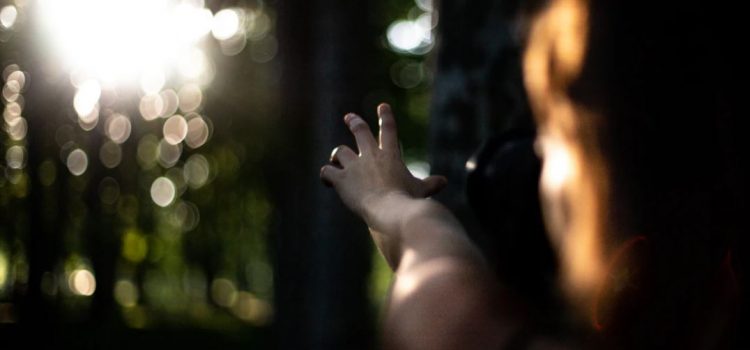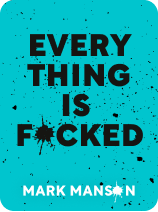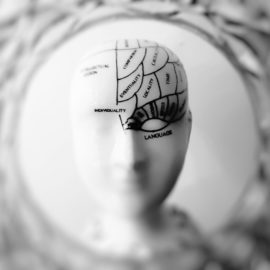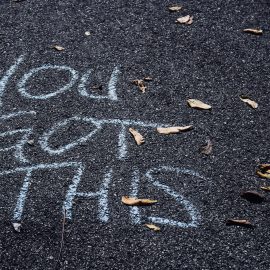

This article is an excerpt from the Shortform book guide to "Everything Is F*cked" by Mark Manson. Shortform has the world's best summaries and analyses of books you should be reading.
Like this article? Sign up for a free trial here.
Why is hope so important in life? What does hope really mean?
Self-help author Mark Manson explores the importance of hope in his book Everything Is F*cked, defining it as the belief that we can progress towards something valuable and create a better future. He also explores how hope can empower us to cope with the pain of existence.
Read on to learn why hope is so important, based on Manson’s exploration of its true meaning.
Why Is Hope So Important?
According to self-help author Mark Manson, society is experiencing an epidemic of hopelessness: People no longer feel like they can help create a better future. Why is hope so important? To explain, Manson wrote Everything Is F*cked, which clarifies exactly what he means by “hope.” He describes how it functions in our lives and what happens when we live without it.
What Does It Really Mean to Be Hopeful?
So what exactly is hope and why is it so important? According to Manson, hope can be defined as the belief that you have the ability to progress toward something valuable and create a more pleasant future. Additionally, he asserts that you need other people to recognize that what you do matters to sustain hope—social validation is a core psychological need.
The reason why hope is so important comes from our need to feel hope because we understand we’re mortal, according to Manson. If you zoom out in time long enough, you and everyone whose life you’ve ever influenced will eventually die, and nothing you do can change that. This is an inherently depressing thought.
For this reason, to feel motivated to do anything, we need hope. Hope empowers us to cope with the inherent pain of existence. If we believe that we’re successfully creating a more pleasant future for ourselves and those around us, we’ll feel fulfilled, even if life at the moment is unpleasant. As long as we believe pleasure is coming later, working toward that pleasure provides a deeper satisfaction that transcends pain now—we feel good about what we’re doing even if it doesn’t feel good in itself. In this way, hope gives us the ability to delay gratification: to trade pain now for greater pleasure down the road, and to feel satisfied while doing it.
For an example of why hope is so important for delaying gratification, say a logging company is planning to cut down the beloved woods near your neighborhood. Driven by the hope that you can stop them, you spend countless, tiring hours contacting local politicians and recruiting others to join your cause. You’re trading the pain of these exhausting efforts now for the promise of a future where the woods remain. Those hours spent fighting the logging company don’t feel good in themselves, but you find this overall pursuit toward a better future fulfilling. Meaningful causes like this are the primary way we find satisfaction in an inherently painful world.
| You Can Find Empowering Hope and Meaning Anywhere In his discussion of hope and why it’s so important in our lives, Manson was possibly inspired by Man’s Search for Meaning by Viktor Frankl, which echoes these ideas closely (Manson lists it among the best books of all time to help you understand life). Frankl was a Jewish-Austrian psychiatrist who spent three years imprisoned in concentration camps during World War II, and this experience informed his theories about the role of hope in human psychology. Like Manson, Frankl argues that we need hope to cope with the inherent pain of existence and feel satisfied when we’d normally be suffering. He takes this idea further, noting that a sense of hope even improves physical health. In the concentration camps, Frankl noted that prisoners with goals to work toward (for example, to see their families again) were much more likely to survive than those who felt like their lives were over. Frankl’s definition of hope overlaps with Manson’s somewhat—they agree that it’s the feeling that we’re improving the life we’ll have in the future. However, there are some differences between their definitions: While Manson argues that to have hope, we need other people to recognize the value of our actions, Frankl doesn’t put limits like this on hope. Unlike Manson, Frankl explores the possibility that anything in our lives can be a source of hope, even if there’s no one around to validate it or if it’s irrational to think so. For instance, Frankl recommends considering that our actions may have a greater purpose that’s too complex for us to comprehend—faith in this idea can be a source of comfort. Frankl’s unconditional belief that everything can be meaningful even extends to death itself. Rather than viewing death as the painful truth that forces us to find meaning, as Manson does, Frankl views it as a source of meaning in itself. By giving us a time limit, death motivates us to take meaningful action during our lives. Without it, we wouldn’t do anything valuable with our lives—thus, we can view death as something to be grateful for, rather than something to fear. |

———End of Preview———
Like what you just read? Read the rest of the world's best book summary and analysis of Mark Manson's "Everything Is F*cked" at Shortform.
Here's what you'll find in our full Everything Is F*cked summary:
- How the hopelessness epidemic is affecting society
- Why you must abandon hope in order to live a fulfilling life
- How to practice a life without hope and instead, find meaning






